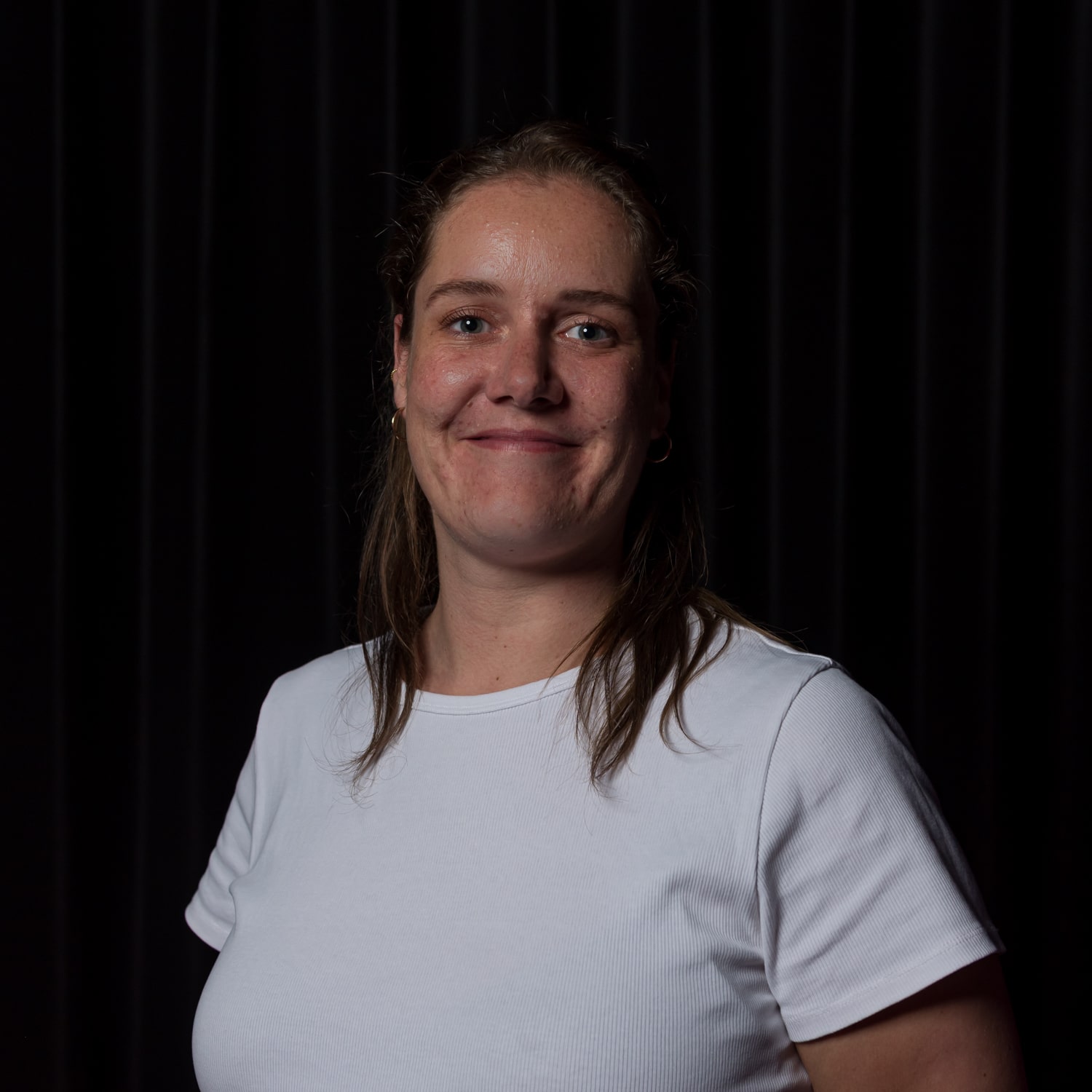This week, we had the pleasure of speaking with Eefje Majoor, a key member of Patronaat in Haarlem, who also collaborates as a partner with one of the creator groups at the IMI Lab.
In Conversation with Our Partner Eefje (Patronaat)

Introduction
Eefje Majoor has been part of Patronaat, Haarlem’s largest pop venue, for nearly a decade. She started her journey behind the bar and has worked her way up to creative producer. In this position, she oversees various projects and grants, leading internal innovations. Eefje’s role is diverse, balancing short-term event organization with long-term planning, always focusing on relevance and audience needs.
The Future of Patronaat
Eefje shares that Patronaat, which celebrates its 40th anniversary this year, must evolve with the changing music landscape and its audience. She indicates that the Patronaat’s concert visitors are quite old. For a healthy future of the Patronaat it’s also very important to reach a younger generation with events geared to them. To achieve this goal, they are developing long-term plans and collaborative projects with external partners, enabling them to offer programs that resonate with different generations.
The Role of Patronaat
Patronaat aims to be an accessible venue for everyone. Eefje highlights the variety of the available programs, ensuring there’s something for everyone. With an audience reflecting the local community, their goal is to represent the region’s diversity. Patronaat plays a significant social role and, like many venues, relies on municipal and national funding.
Challenges in the Music Industry
Eefje discusses the hurdles in the music industry, particularly for emerging talent seeking to make their mark. She acknowledges the difficulty of gaining attention in a sector often dominated by bigger names. The competition is tough, and without the right connections or a strong social media presence, it can be challenging to break through. However, she believes there’s still space for new artists unless they are willing to work hard and adapt to current trends.
Collaboration with IMI Lab
The partnership with IMI Lab evolved from a successful previous collaboration. “Last year, we participated in a challenge from IMI Lab, and when they approached us with the question if we have another topic this year, we jumped on board!” she shares.
The challenge
“Before the pandemic, we had several event concepts aimed at young people aged 16 and up. But after the lockdowns, we had to rethink everything,” Eefje explains. The pandemic created a disconnect between the organization and the youth, who had previously been active in nightlife. “We saw a rise in incidents and a drop in ticket sales. Young people seemed to lose their connection to the nightlife scene.”
Strict age regulations in Haarlem, where most nightclubs are 18 or even 23+, made it even harder for younger people to engage. “There is a significant group of youth who simply didn’t know what they wanted anymore, which is a challenge for us.”
Seeking Solutions
Feeling the urgency to act, Eefje proposed to research how Patronaat could reconnect with young audiences. She believes pop venues have a vital role in shaping events for this group and can invest more than large commercial festivals. However, numerous unsafe situations have arisen, particularly during school events, complicating the creation of a safe nightlife environment. Eefje points out to the sense of disconnection among the new generation. “We want to experiment and innovate, including seeking help from students who are closer to the target audience.”
Creators from the IMI Lab are also looking into this challenge and will try to come up with a solution for the problem.
The Role of Youth in Nightlife
Eefje reflects on how young people are raised and the shifting norms. “There are many misconceptions about what youth want and how they behave. The role of parents and educators is crucial here. Many young people are unprepared for the challenges of nightlife.” This lack of experience leads to incidents, and Eefje emphasizes that the problem is not only theirs. “It’s a systemic issue that we must tackle.”
She highlights the importance of creating a safe spaces for youth, allowing them to engage positively with nightlife. “If we don’t connect with this generation and provide meaningful experiences, they may not return in the future.”
Eefje’s advice for Future Professionals in the Music Industry
Eefje has valuable advice for students aiming to enter the music industry. “Be skeptical of successes you see on social media. Achieving that level of success often takes a long time and requires significant effort. Stay true to your own knowledge and experiences.” She urges students to seek for practical experience. “Internships are essential. A degree alone means not so much in this field. Show initiative, ask questions, and be engaged.”
She emphasizes that while the music industry is challenging, perseverance and passion can lead to success. “Don’t just stay in the classroom; get involved in real work. The connections and experiences you gain will be far more valuable than you might expect.”
Eefje wraps up the conversation on a hopeful note. “It’s an exciting time to work in the music industry, especially with all the changes ahead. Stay curious and open to new opportunities—that’s the key to success.”